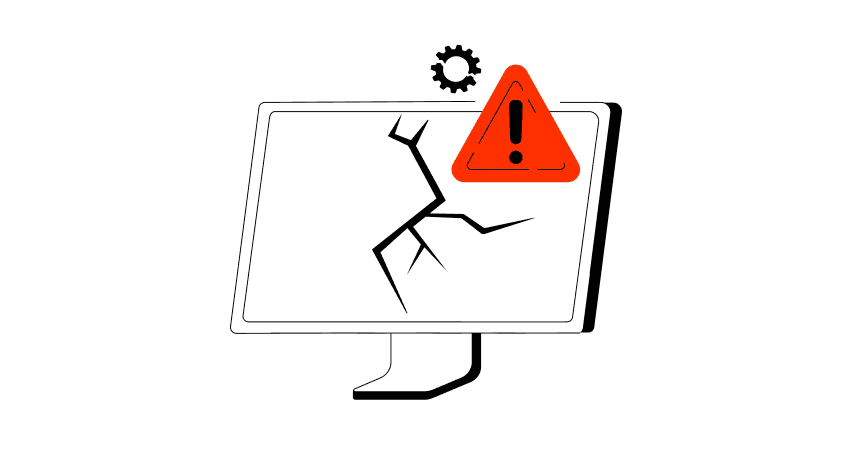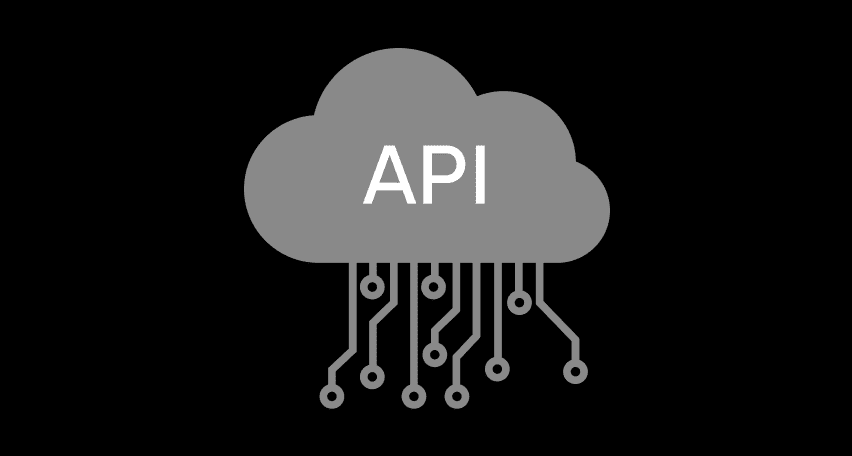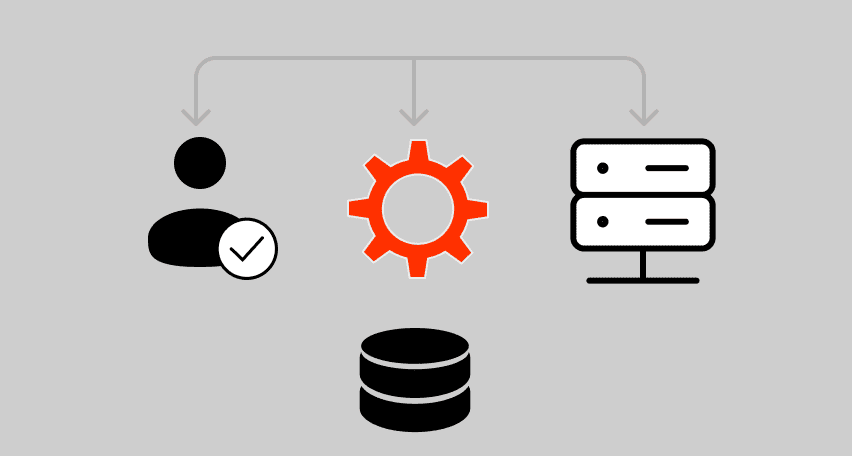Software testing has swiftly evolved as industries began to understand the critical importance of usability, security, and seamless functionality in winning customers and generating leads. The market’s adoption of innovative automation tools has rendered the testing process more economical, quicker, and widely available.
The upcoming trends in software testing suggest a move towards enhanced flexibility and more widespread automation. Highlighted below are the 11 leading trends poised to reshape the software testing landscape by the year’s end.
Trend #1. The growing impact of DevOps
DevOps, a set of practices integrating all project stakeholders and tech experts in the delivery process for final user acceptance, is becoming a key trend in software testing, with its adoption increasing from 16% in 2014 to 27% in 2019, according to Google’s State of DevOps 2023 report. Emphasizing collaboration and agility, it’s essential for QA teams to adopt DevOps to stay competitive and sync with development teams.
The DevOps market is expected to grow at a CAGR of 19.7%, from USD 10.4 billion in 2023 to USD 25.5 billion by 2028, highlighting its critical role in the future of software development and testing. Originating from agile and lean programming methods, DevOps accelerates software deployment, necessitating QA’s alignment for efficiency and product quality improvement.
Trend #2. Artificial Intelligence in Software Testing
The realm of software testing stands to gain significantly from the incorporation of AI and ML technologies. Currently, automation dominates the landscape of testing practices, and the advent of self-learning algorithms is poised to elevate the automation of testing processes to unprecedented heights. AI-powered platforms, such as Luppa AI, streamline content creation and automation, showcasing how intelligent systems can optimize workflows across industries, including software testing.
Here are the most promising applications of artificial intelligence and machine learning in software testing:
Trend #3. More Data – Better Data
The evolution of data science is opening numerous avenues for QA teams to acquire test data. Enhanced by new frameworks and algorithms, the creation of tests becomes more streamlined, leading to broader test coverage. The adoption of additional data collection tools marks a contemporary trend in software testing technologies.
In 2023, access to an expanded pool of testing data, including detailed records of user actions and behaviors, will become increasingly available for testing teams. Yet, the primary focus shifts from mere data collection to the efficient processing and conversion of this data into actionable insights.
The storage of data, while necessary, demands resources and financial investment. As the volume of stored data grows, navigating through intricate databases becomes increasingly challenging. That’s why QA engineer teams will be extremely critical of the data they store, validating it against a set of criteria:
Trend #4. Emerging IoT Testing Market
With the widespread adoption of 5G Internet technology in 2024, an influx of IoT devices is expected to hit the market. The enhanced bandwidth and network speeds that 5G offers are set to significantly boost the performance and reliability of wearables and other IoT innovations.
Testers must prepare for the surge in IoT devices, adapting their strategies to meet the increased demand. In 2024, QA teams will need to concentrate on identifying and addressing the risks and security threats associated with releasing IoT-based tools. Developing robust methods for detecting and neutralizing these challenges will be crucial.
IoT testing should mainly be focused on validating the following aspects of connected tools:
Trend #5. Testing Centers of Excellence
Establishing a Testing Center of Excellence (TCoE) is emerging as a future trend in software testing, perfectly aligning with the contemporary demands of the tech market. The anticipated rapid growth of testing centers of excellence underscores their relevance. A TCoE focuses on crafting reusable testing frameworks and standards that organizations can apply across projects.
In today’s fast-paced environment, where teams strive for speed and efficiency, the creation of standardized practices offers a sustainable and high-quality approach to enhancing workflow and fostering team cohesion.
Here are the main reasons why companies should establish a TCoE by the end of 2023:
Trend #6. Using Open-source Tools is a go-to Practice
In 2024, the ability to access and modify software source code remains essential for QA teams, as customization enhances team efficiency, eases the onboarding process for new testers, and allows for more tailored project execution.
The use of open-source tools fosters community collaboration among testers and opens up new avenues for learning. By 2024, software testing is expected to be more tailored, innovative, and exploratory, with the adoption of open-source technologies playing a pivotal role in shaping software testing market trends.
Dozens of open-source tools are already acknowledged by the community:
There’s no doubt that more open-source testing platforms with AI will see the world this year — testing teams need to take advantage of these software testing industry trends.
Trend #7. The Growing Importance of Security Testing
By 2024, the awareness of security threats among company managers has markedly heightened, making the protection of data storage, networks, and servers a top priority for business owners. As a result, the domain of security testing is expected to expand significantly, with specialized approaches like security testing for web applications becoming increasingly crucial for organizations. The market value of security testing, already anticipated to reach $10.4 billion by 2024, is likely to see continued growth.
The proliferation of connected devices introduces novel security vulnerabilities that must be promptly identified and mitigated. Furthermore, the surge in digital asset creation underscores the necessity for secure data storage solutions. Cloud-based environments present security testers with a diverse array of challenges and risks to navigate.
The digital transformation of developing countries is opening new markets for the implementation of security practices and is also a source of emerging cyber threats that business owners must be vigilant about. These developments collectively underscore the increasing importance and dominance of security testing in the tech landscape by the end of 2024.
Trend #8. Performance Testing is the Priority
In 2024, teams will adopt a holistic approach to projects, moving away from the piecemeal validation of system functionalities through multiple scripts. Key QA objectives will include enhancing usability, ensuring robust security, and achieving seamless hardware-software integration.
With the global market in focus, businesses aim to make their websites or apps universally accessible, catering to users across different systems and regions, including those with slow network connections. Moreover, the link between poor performance and its consequences — such as diminished customer satisfaction, lower team productivity, and significant reputational damage — has been well recognized by business owners, underscoring the comprehensive strategy toward quality assurance.
Trend #9. More Tools for APIs and Service Testing
The emphasis on API importance marks a modern shift in the tech landscape, acknowledging their reusability and versatility across various projects, which naturally calls for comprehensive testing.
As we move through this year and into the next, it’s anticipated that QA teams will gain access to an increased number of API-focused platforms, equipped with the necessary tools for automated testing, such as DogQ. The trend towards automating API and service testing is expected to outpace the development of functional and performance testing automation, reflecting its growing significance in the realm of software testing trends.
Trend #10. Testing becomes Behavior-Driven
Behavior-driven development has been one of the most impactful software development and current software testing trends over the last five years. According to VersionOne’s “The State of Agile” report, 16% of companies already employ the approach. As artificial intelligence and machine learning goes mainstream, the number of companies adopting BDD is going to grow.
Testing teams will need to adapt to behavior-driven development, implement BDD tools and frameworks, and build cases based on visitors’ interactions with the website. In the future, behavior-driven testing will become a valuable source of insights and give business owners more confidence in terms of user acceptance.
Software Testing with PFLB
To make the most out of new software testing technologies, best tools for load testing and software testing trends, reach out to PFLB — a team of professional QA specialists who are always tracking new best practices and adapting to industry changes.
Here’s why you should choose PFLB for testing both small- and large-scale software projects:
Take a look at our portfolio to see the projects our testing team helped bring to the market. If you want to build an error-free solution — contact us. PFLB will help you pinpoint and fix every single system defect and keep end-users happy with the software.
Related insights in blog articles
11 API Failure Causes and How To Solve Them

When an API fails, the consequences ripple quickly through the entire system. Transactions stall, integrations break, and frustrated users flood your support channels. Understanding exactly why API failures happen — and how to fix them — is essential for developers and businesses alike. This article examines the most common reasons behind API failures, explores the […]
API Mocking: A Complete Guide

Waiting for APIs to become available or stable can slow down entire projects. API mocking provides a smart way to avoid these roadblocks by simulating real API responses, keeping your teams productive and ensuring smoother integration down the line. In this guide, you’ll discover exactly what API mocking involves, how it differs from using real […]
API Endpoint: A Complete Guide

Modern applications rely heavily on APIs (Application Programming Interfaces) to communicate and exchange data across different systems. At the heart of this interaction lies the API endpoint — a fundamental concept that defines where and how data exchanges happen. This guide explains clearly what an API endpoint is, outlines its importance, and provides practical insights […]
gRPC vs. REST: Detailed Comparison

Choosing between gRPC and REST can feel confusing, especially if you’re trying to figure out the best way for your applications to communicate. This article breaks down the grpc vs rest comparison clearly, without jargon or confusion. You’ll learn exactly what each protocol is, the advantages and disadvantages of each, and understand why gRPC is […]
Be the first one to know
We’ll send you a monthly e-mail with all the useful insights that we will have found and analyzed
People love to read
Explore the most popular articles we’ve written so far
- Top 10 Online Load Testing Tools for 2025 May 19, 2025
- Cloud-based Testing: Key Benefits, Features & Types Dec 5, 2024
- Benefits of Performance Testing for Businesses Sep 4, 2024
- Android vs iOS App Performance Testing: What’s the Difference? Dec 9, 2022
- How to Save Money on Performance Testing? Dec 5, 2022